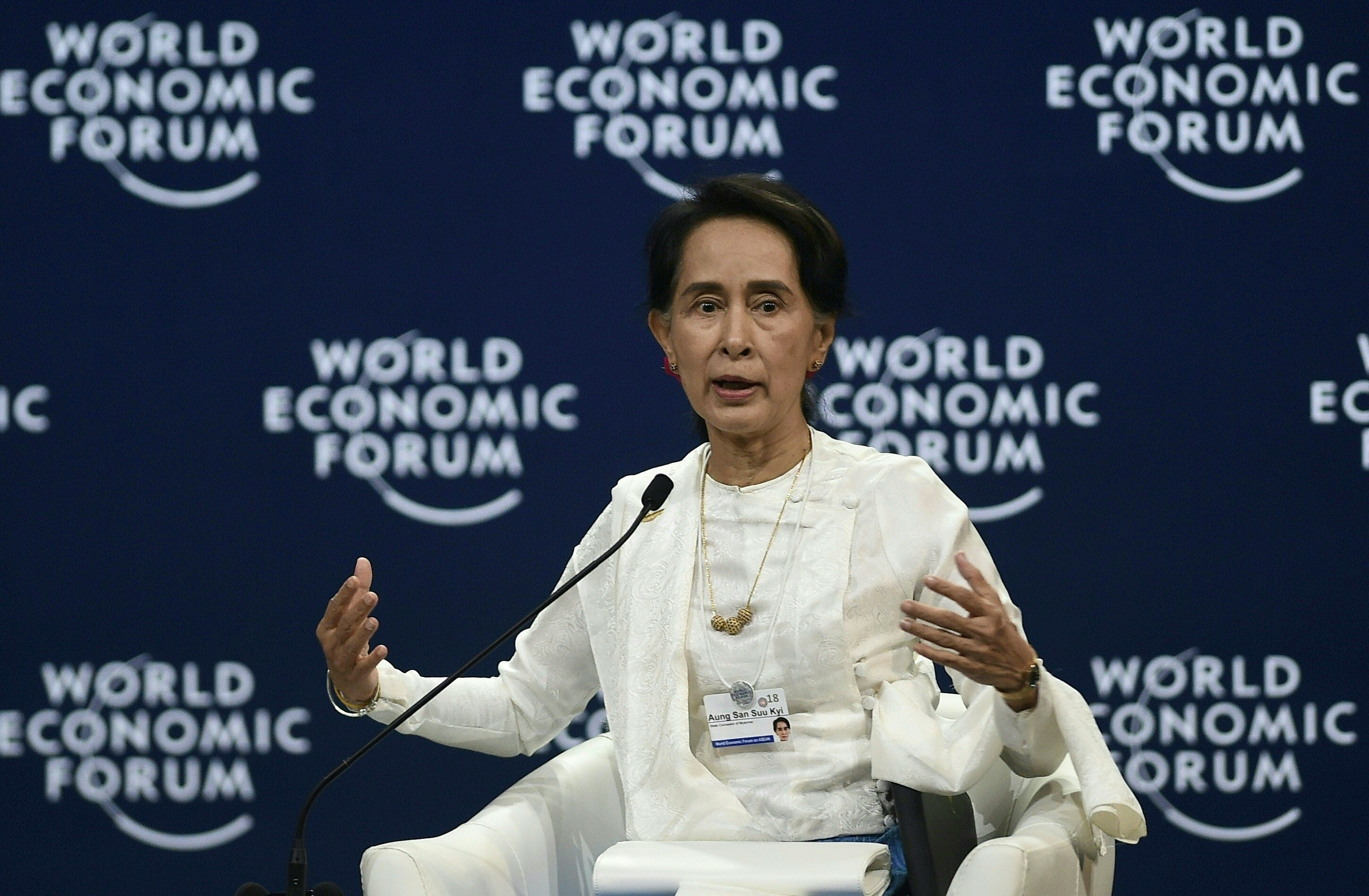IFEX members and other groups respond to Aung San Suu Kyi's invitation to prove why the prosecution of two Reuters journalists in Myanmar was flawed and should be overturned.
Aung San Suu Kyi
State Counselor
Naypyidaw
Myanmar
Your Excellency,
Recently, at the World Economic Conference in Hanoi, Viet Nam, you defended the September 3 conviction and sentencing of Reuters reporters Wa Lone and Kyaw Soe Oo for violating the Official Secrets Act, and invited anyone who believes in the rule of law to point out why the judgment was problematic. As a concerned group of more than 50 human rights and free expression organizations from around the world, we would like to take this opportunity to respond to your invitation and to call for Wa Lone and Kyaw Soe Oo’s immediate and unconditional release.
First and foremost, contrary to your comments, the case is a clear attempt to restrict freedom of expression and independent journalism in Myanmar. Wa Lone and Kyaw Soe Oo were arrested on December 12, 2017, in the course of doing their job as professional journalists: investigating military operations in northern Rakhine State. Specifically, the two men were investigating a massacre that took place in the village of Inn Din, during which 10 Rohingya men and boys were summarily executed by the security forces—a crime which the military later admitted to. This investigation—which came at a time when the Myanmar military and the civilian-led government rejected mounting reports of human rights violations in northern Rakhine State—was clearly in the public interest, and still is.
The law that was then used to prosecute them—the colonial-era Official Secrets Act—is one of a number of repressive laws that have been used to prosecute journalists and stymie media freedom. The Act is broadly worded, and grants wide powers to the government to determine what classifies as a “secret”—indeed, the entire Act goes well beyond the restrictions on the right to freedom of expression which are permitted under international human rights law on the grounds of national security.
Even within the terms of the Act itself, for a conviction under Section 3.1 (c), evidence should demonstrate that the accused had in their possession secret documents that “might be or is intended to be, directly or indirectly, useful to an enemy.” However, evidence and testimony presented during the pre-trial and trial hearings failed to demonstrate this was the case and instead established the following facts:
• The documents Wa Lone and Kyaw Soe Oo are accused of possessing are not secret, but contain information already in the public domain;
• There is no evidence of intent to turn documents over to an enemy or to harm the country;
• Police testimony regarding the circumstances of their arrest was contradictory;
• Moreover, a police whistleblower credibly testified that the two journalists had been framed: namely, that police were ordered by their superiors to invite Wa Lone to a meeting so he could be handed documents and then immediately arrested;
• Wa Lone and Kyaw Soe Oo were subject to ill-treatment after their initial arrest, including incommunicado detention for two weeks, hooding, and sleep deprivation.
In summary, we believe that that Wa Lone and Kyaw Soe Oo should never have been arrested in the first place, let alone prosecuted, convicted and imprisoned. Their trial, which was already manifestly unfair, was made more so by the repeated failure to uphold key tenets of the rule of law and to build a convincing evidence-based case against these journalists.
We therefore call on the Myanmar authorities to immediately and unconditionally release these two men, and reject the convictions against them. We further urge your government to work towards the swift review and amendment of all laws that can be used to unlawfully restrict the right to freedom of expression, so as to bring them into line with international human rights law and standards.
Yours respectfully,
